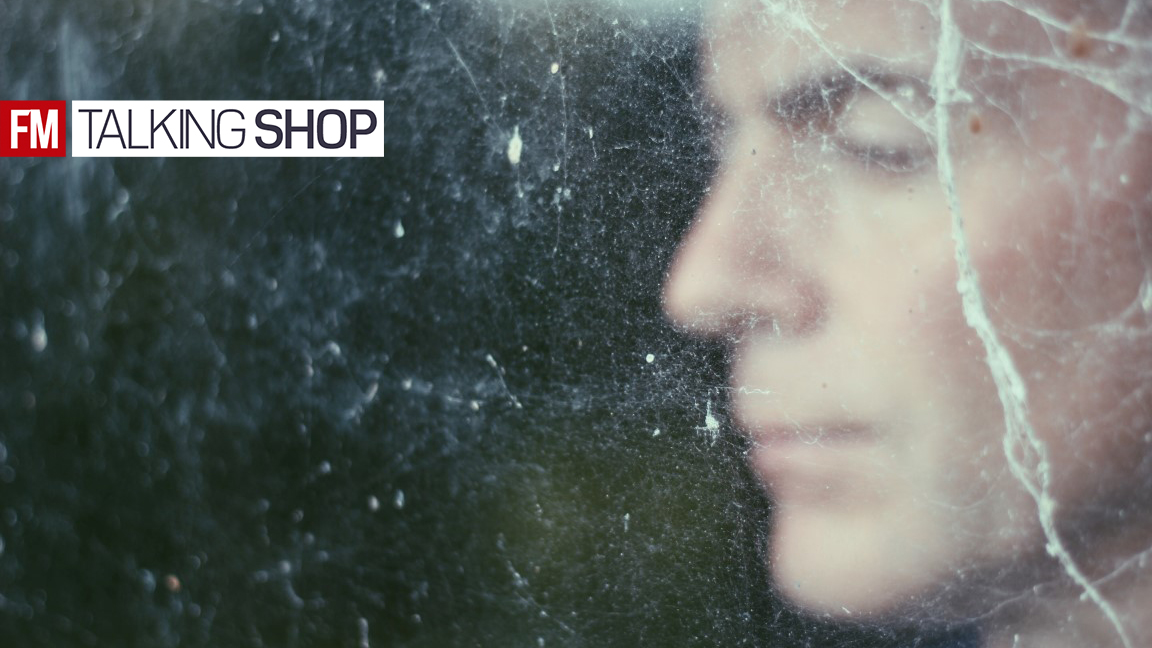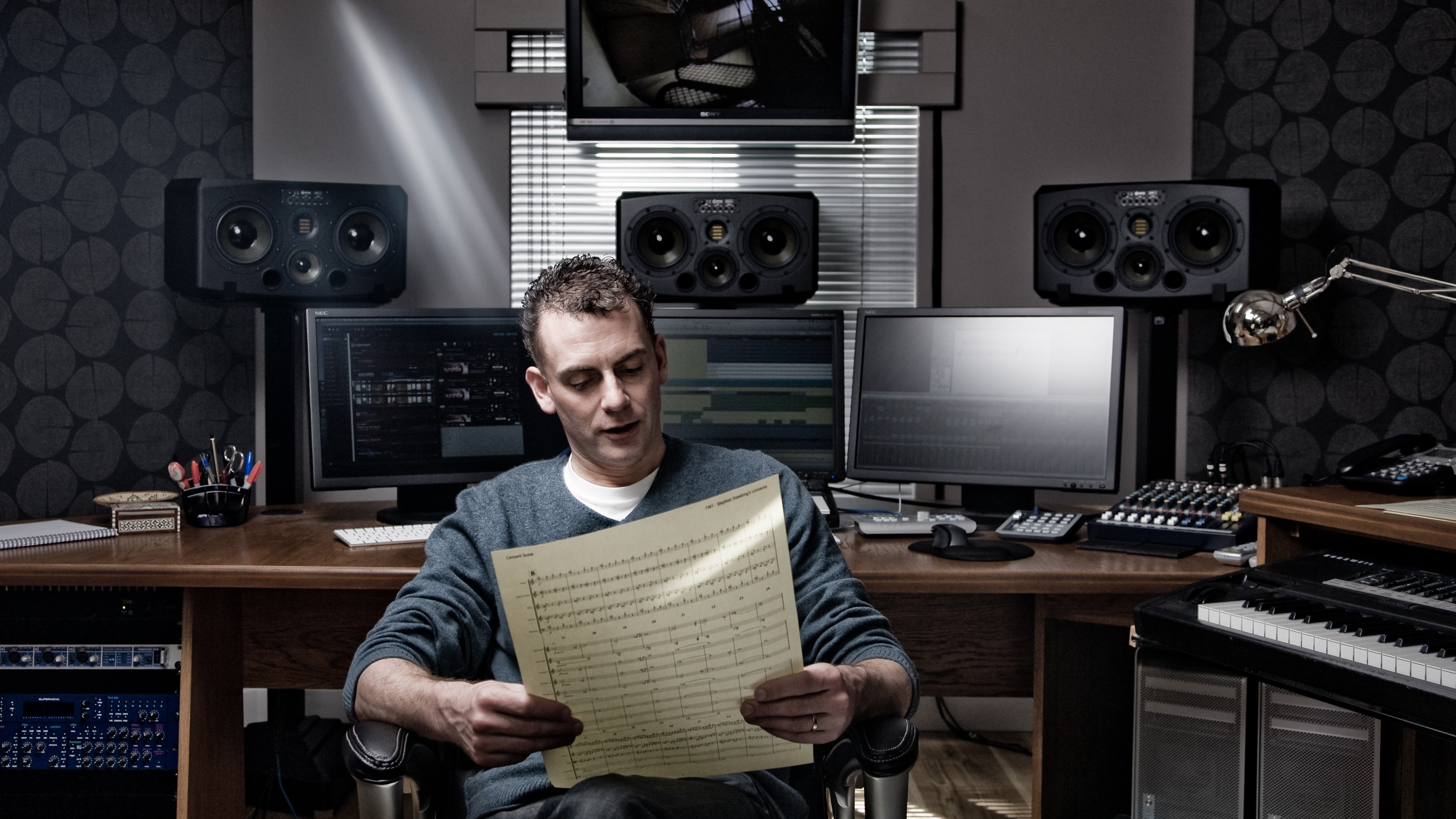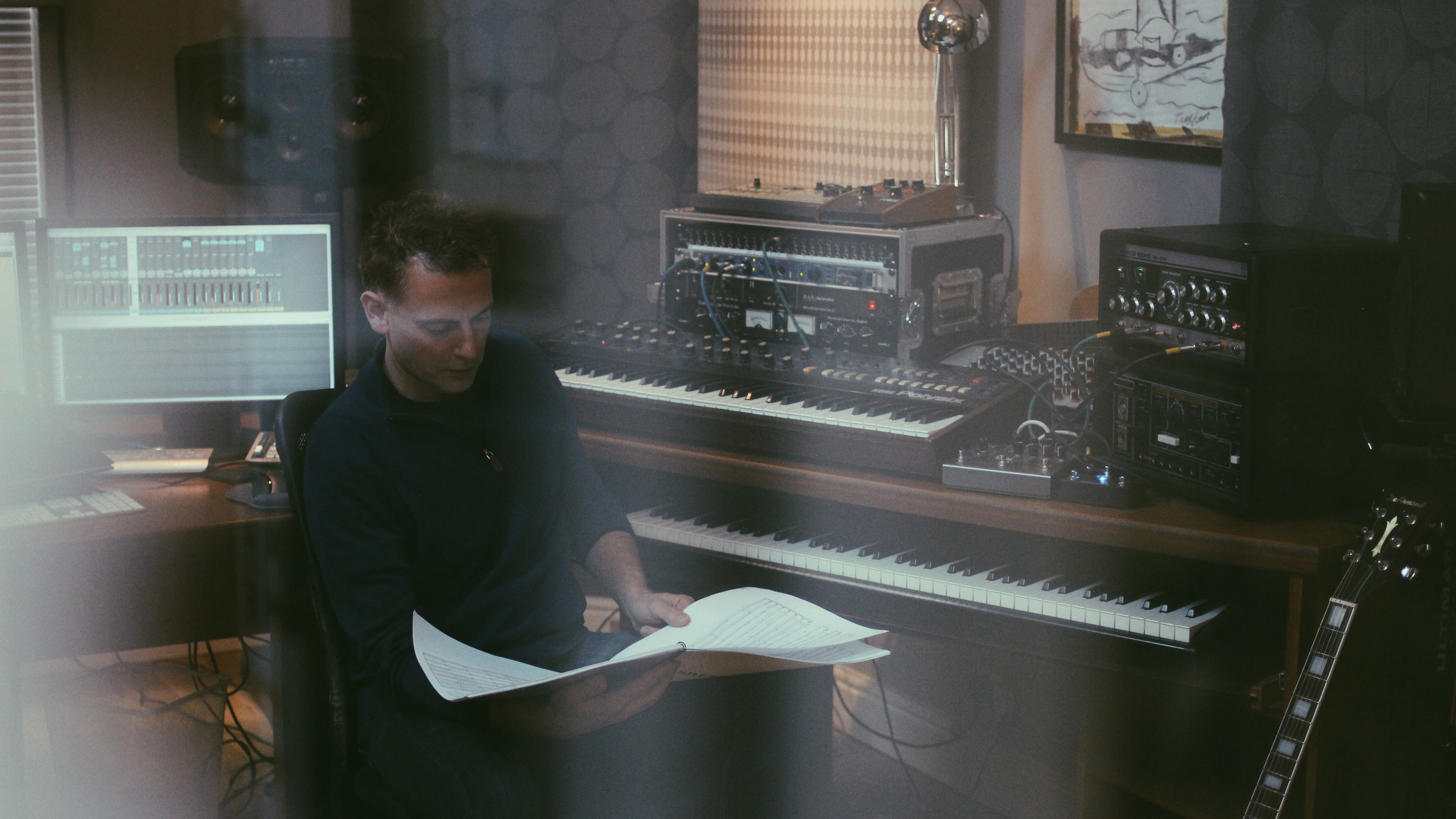Talking Shop: IN-IS
Composer Sheridan Tongue invites us into his studio

Want all the hottest music and gear news, reviews, deals, features and more, direct to your inbox? Sign up here.
You are now subscribed
Your newsletter sign-up was successful
Sheridan Tongue is a Bafta-nominated composer who has worked on TV projects including Spooks, Silent Witness and the Brian Cox-fronted Wonders Of The Solar System.
His latest project, as IN-IS, sees him stepping away from TV and film for an album of electronic-tinged ambience, titled Seven Days.
When did you start making music, and how did you first get started?
"When I was a teenager I built a monophonic synth from a kit that was sold through a magazine called Hobby Electronics. The keyboard was made of bell push buttons and could produce a sine and saw wave and simple one track sequencing. It was amazing to me and I still have sitting on the shelf in my studio.
"I was really into recording my own instrumental tracks with an old cassette tape recorder, I accidentally discovered that if I took the erase head out the machine then every time I recorded something new it overdubbed the recording on to the previous take. It was a very simple form of multitracking, as I did not have a multitrack recorder.
"As a teenager I was inspired by Trevor Horn, Mike Oldfield, Kraftwork, Hazel O'Connor, Stravinsky, Shostakovich and Philip Glass."
Tell us about your studio/set-up
Want all the hottest music and gear news, reviews, deals, features and more, direct to your inbox? Sign up here.
"I have always had a writing room (currently a building in the garden) but I reached a point about eight years ago where I needed an additional studio for mixing and a place where my assistant could work full time - so I had a second studio built to my specification that is set up for mixing in Dolby Surround 5.1. Both studios have the same Mac and PC rigs so projects can be easily transferred between them.
"I am using analogue gear more and more these days (keyboards and outboard) and usually commit these parts to audio tracks at the writing stage. Once everything is in Logic then I tend to use mainly plugins for mixing so that mixes can be easily recalled and tweaked if necessary. In the world of music for film and television sometimes mixes have to be changed at very short notice - so speed is important."

What DAW (or DAWs) do you use, and why did you choose it?
"I have used Logic now for many years - and have always considered it to be the ultimate musician's sequencer. For me the best thing about Logic is the very solid integration of audio and the score edit facility. I also like that the environment page can be really finely tuned and modified to my specific needs. I have a very bespoke set up in the environment page that has evolved over many years that enables me to run my sample library via Vienna Ensemble Pro on a custom made PC with a lot of control from within Logic."
What one piece of gear in your studio could you not do without, and why?
"The Urei 1176 compressor plugin from UAD. It is a very versatile compressor that I find has a very transparent sound, yet it can bring many things under 'control' very quickly: vocals, synth lines, solo instruments. I used to use the original version of these all the time when I mixed tracks for other people and would often hire in six of them in for a mix session."
What's the latest addition to your studio?
"Actually an upright piano. I know that is not really 'gear' but it is lovely to play and so inspirational when composing. It is also beautiful to record and I used it a lot on my album Seven Days. You can hear it in the track Opus Einn."
What dream bit of gear would you love to have in you studio?
"A Moog Minimoog Voyager XL - I think I would find that very useful in my studio. The Moog sound is just timeless. There is a lovely kinaesthetic feel when playing a Moog keyboard with all the rotary knobs and it is so responsive. It's beautiful capturing a live take when track laying."

When approaching a new track or project, where do you start?
"I usually start by playing a sound that is very inspirational to me, like a bespoke sample patch that I may have created or an analogue keyboard, or by sitting down at my upright piano and going back to basics. I quite often put the sequencer into record and capture a performance at this very early stage. I may spend the day working on ideas for a number of new tracks then maybe come back the next day and listen to everything fresh with more critical ears. Sometimes I even just sing a melody into my phone if I am away from the studio and something comes into my head."
What are you currently working on?
"Well my album Seven Days will be out the time this interview runs! I am very excited to finally release it. It has been a labour of love for the last couple of years. Recording a 17 piece string section at Air Studios for the album was certainly a highlight of the whole process - to stand in front of 17 world class musicians before the session and explain to them what I was after was a moment I will never forget. I have done many recording sessions for television shows but this was the first one for my own personal album and it was a magical day of recording.
"The sound of the strings was extremely important to me and I spent a lot of time discussing the requirements with my recording engineer Jake Jackson and how we could achieve this prior to the recording. The final mixed tracks on the album are something that I am very proud of and I would love other people to discover my music through this release and IN-IS.
"Aside from this, I am also about to start work on a composition for strings and electronics for an event at The National Portrait Gallery in London for a Picasso exhibition and artist performance in January. I will perform the piece live with musicians though a 3D surround sound system in the space. It is all a bit experimental! I'm currently composing all the music for a new series of Silent Witness for the BBC which will transmit in January 2017."
IN-IS's essential music making tips...
Don't overcomplicate tracks
"When I first started out working on film and television soundtracks I used to think that by adding more and more parts to a track the whole thing would just get better - but now I feel quite the opposite is true. I pay very close attention to each part that I add and everything is very carefully considered: timbre of sound, reverbs, delays. I mainly use my own bespoke sound library when composing tracks. This is a library of sounds and unusual instruments that I have built up over many years with various musicians and engineers. Each individual sound has been hand crafted into it's own sampler instrument before I use it in a composition. I would rather listen to a track made up of fewer very classy sounds then a track full of mediocre sounds. Less is more!"
Composing to picture: always keep the sync sound in when composing
"There is a temptation when scoring to picture to switch off the sync sound (ie dialogue and FX) and just score to picture. I have learnt over many years that generally this is the wrong way to go about things. The music that I compose has to be sympathetic to the sound as well as the picture and narrative. What I mean by that is, for example, there is no point in writing a ff piano part if there is quiet dialogue in the scene as the piano will either mask the dialogue or the music will have to be so low in the mix it will not be heard on transmission. In my early TV scoring days I remember writing a track with lots of fast bright percussion - hi-hats, casabas, etc - over the top to add energy. When the show went out the music was so incredibly low in the sound mix the music sounded like a load of buzzing flies trying to get out of a jar!"
Don't over process sounds
"If I find myself having to work too long on an individual sound or track by adding additional processing - then the chances are that the original sound source is just not right. Rather than add more and more plug-ins to correct it I would rather replace the original source. Every plugin added to a track will add a tiny element of distortion to that sound and the more plugins inserted the more corruption is taking place. You can sometimes begin to hear this corruption: to me tracks start to sound a little 'digital'. I always prefer a more organic and 'real' sound, so I try to work with carefully crafted patches/sounds or real instruments recorded well and use fewer plugins. I rarely have more that two or three plugins on a track, usually a compressor, EQ and maybe something else."


Future Music is the number one magazine for today's producers. Packed with technique and technology we'll help you make great new music. All-access artist interviews, in-depth gear reviews, essential production tutorials and much more. Every marvellous monthly edition features reliable reviews of the latest and greatest hardware and software technology and techniques, unparalleled advice, in-depth interviews, sensational free samples and so much more to improve the experience and outcome of your music-making.
